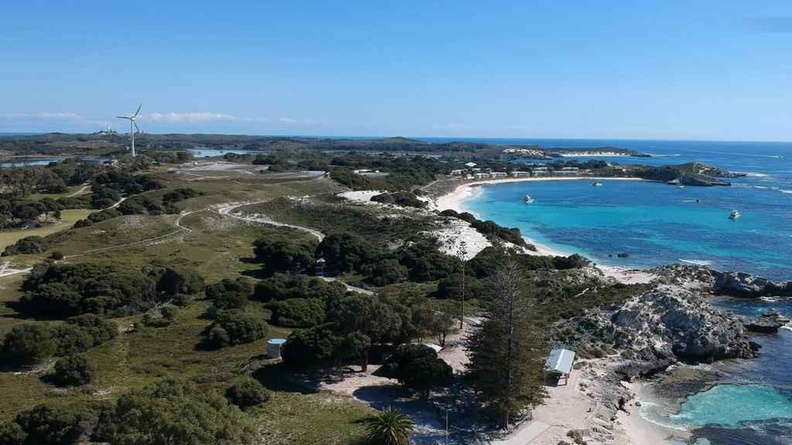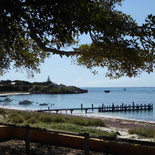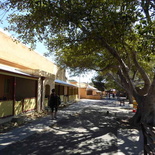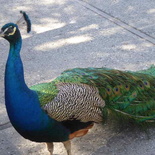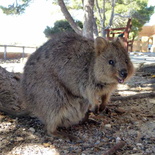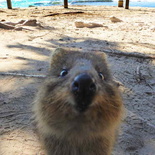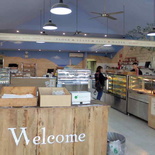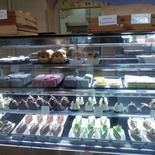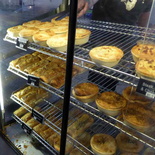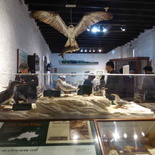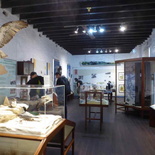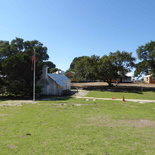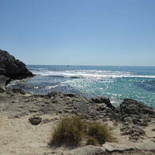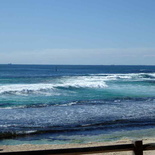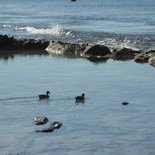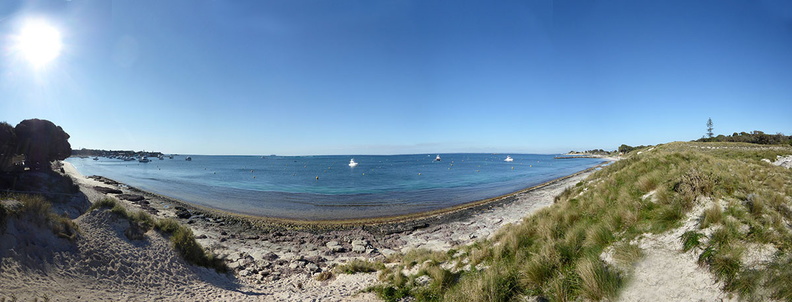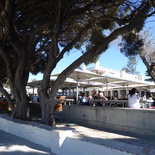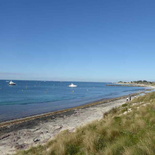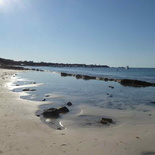Perth is an Australian city, and the largest capital city off the coast of Western Australia. Today, let’s check out the scenic Rottnest Island. Established in 1830s, it is one of the primary nature sites with nice bays and ocean side views to visit when you are in Perth. Rottnest is a small island located about 19 km west off the town of Fremantle in Perth.
An Aerial view of Rottnest Island over the Basin and Long Reach bay
Moreover, it is also known in it native name as “Wadjemup” to the local Noongar people. Wadjemup is also the name of one of the two lighthouses you can find on the island.
Furthermore, Rottnest island is an class A rated reserve. Hence, it the offered the highest level of protection afforded to public land. Interestingly, administered by the Rottnest Island Authority under a separate act of parliament.
Getting around Rottnest
Rottnest is a relatively popular holiday destination in Perth. Being one of the few tourist attractions in the city, Rottnest sees about half a million in annual visitors. It has a permanent population of around 300 people living on the island.
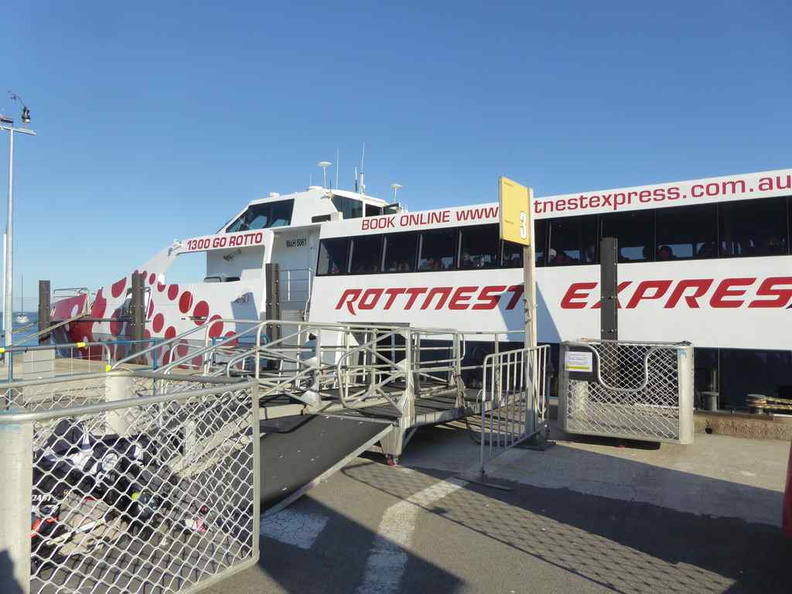
The only economical way there is ferry, with planes being the other option as there is a small airstrip. There are daily ferry services. Notably, unauthorized cars are not allowed on the island. Hence, bicycles or walking are usually the preferred transportation method of choice.
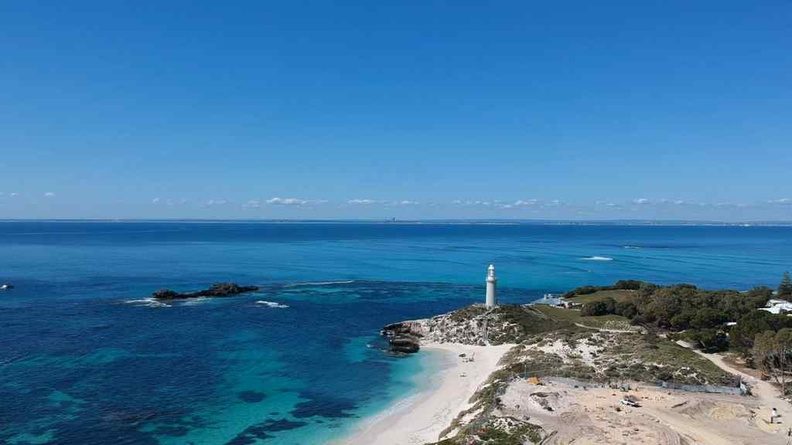
The island is only 11km long and 4.5km wide making it easy to explore with a number of great trails to follow.
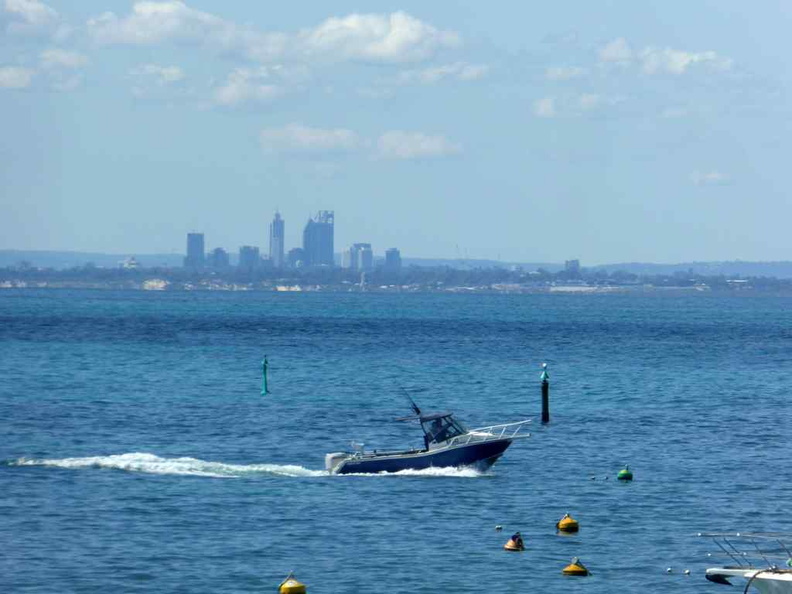
Furthermore, your pedal power can be hired on the island or through your ferry operator. Alternatively, you can bring your own by ferry from the mainland for a small fee. If you do not want to break a sweat, there is an air-conditioned coach called the Island Explorer with 18 stops all along the island for a fee.
Welcome to Quokka land
Notable “Wildlife” on the island comprises of mostly largely tame quokkas and peacocks. You can find free roaming peacocks. They tend to frequent the human inhabited regions of the island such as the jetty area, on reasons of easily accessible food.
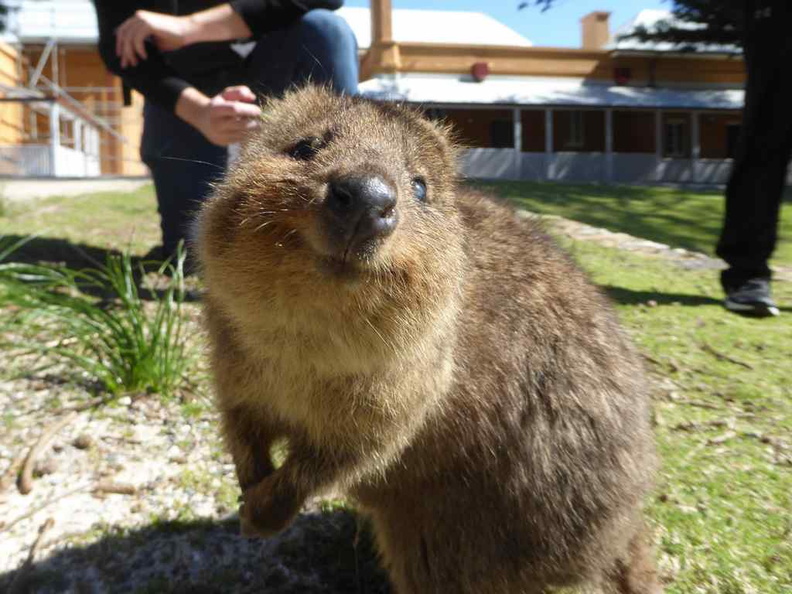
Quokkas are a different bunch. Rottnest is perhaps best known for its population of quokkas. Having sais that, Rottnest is one of the few areas in the world where the native Australian Quokka can be found. You can find them all over the island, especially in the green wooded areas where these cat-sized rodent-like marsupials roam freely. Also, they are a native species protected by the national parks authorities, which means you should not “interfere” with them in their natural habitat.
Moreover, their survival there is largely due to the exclusion of natural or introduced predators. Such as dogs and cats, which none can be found on the island.
However, considering how prevalent they are around the island and in the settlement villages, it is difficult not to come in close proximity to them. Let be give them a friendly pet. There are herbivores and consume mainly small green pine-like shrubs you can find all over the island.
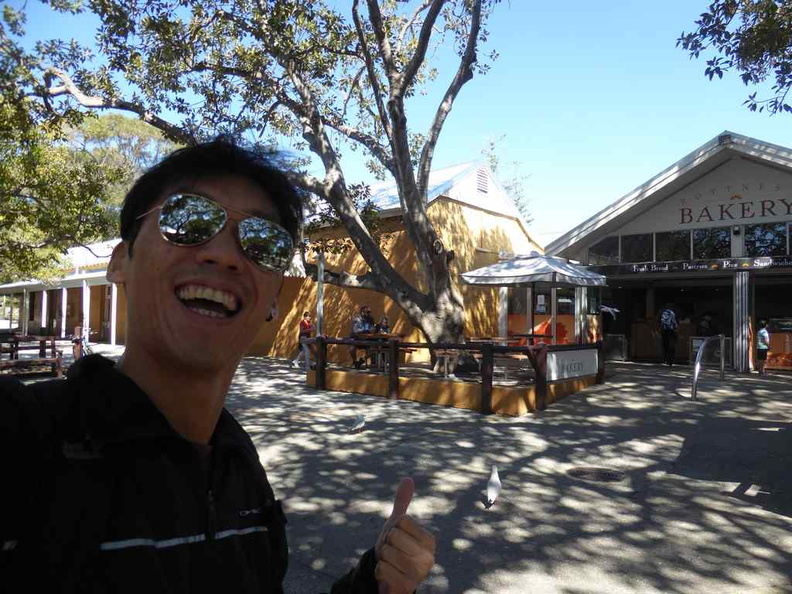
Places of Interest, Rottnest Bakery and hotel
A small town settlement resides by the ferry jetty area. It used to be stable yard area. A popular store is the Rottnest bakery. You can find a variety of cold and hot pastry items. Recommend items includes cold cheesecakes, rainbow cakes, as well as hot meat pies.
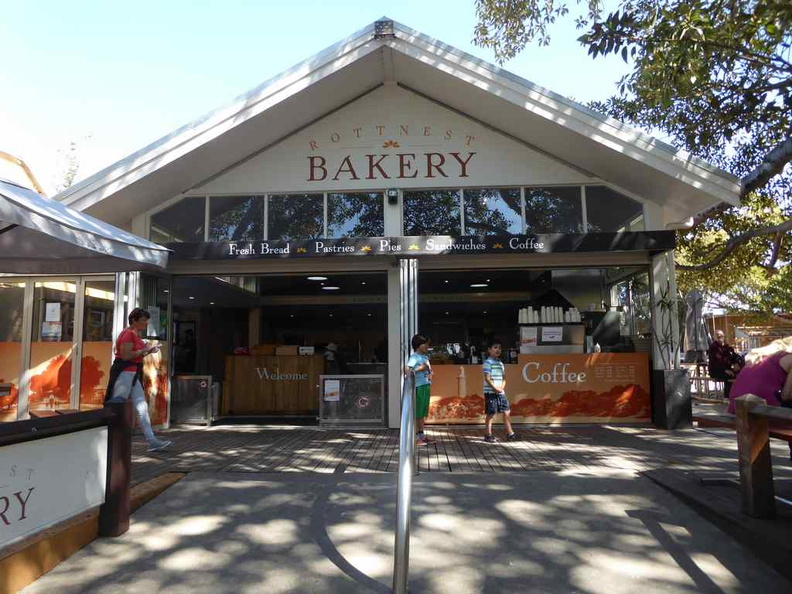
Furthermore, notably, the settlement is also quite self-sufficient. There is also a grocery supermarket in the vicinity, which serves the residents and guests on the island. If a more fine dining option is what you desire, you can find a decent 3 star hotels with seaside pool bars and waitered restaurants facing the beach side by Thompson Bay. Also, Thompson Bay is also home to a marina where recreational craft can berth on your visit there.
Rottnest Museum, an island background
Moreover, tucked behind the settlement area is the Rottnest museum. You can recognize it by a flag pole in front of a rather old single floored administration building or sort. Entry is free and donations is recommended. The friendly museum staff will be there to answer any queries you have.
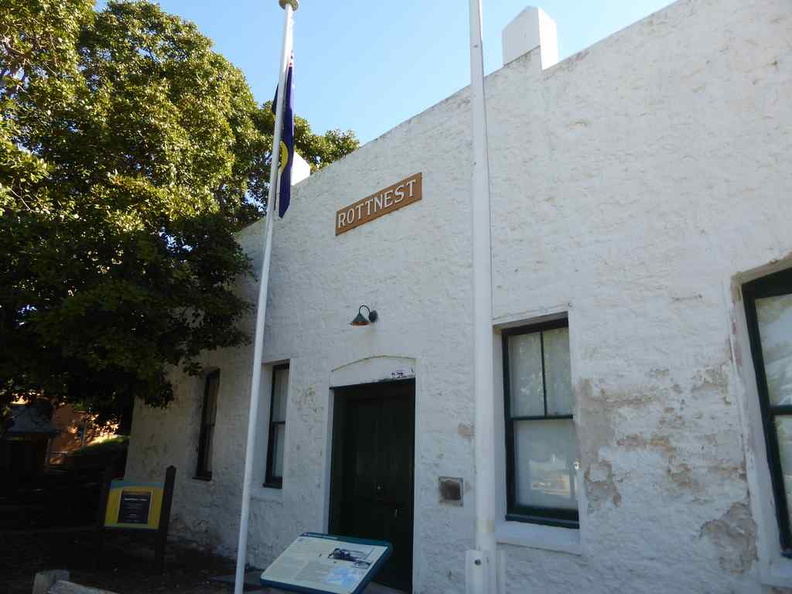
The museum covers the human, social illogical and natural aspects of the island. You be introduced to a couple of taxidermy exhibits of animals on the island, permanent and migratory. Also, here, you learn that the island used to serve as a remote prison settlement.
Moreover, the island served as an Aboriginal prison between 1838 and 1931. Additionally, it was also used as a reformatory for boys from 16 May 1881.Of course, the only remnants of this prison are the building shells, which are repurposed for purposes of hospitality and tourism.
Also told is the story of the great escape of six Aboriginal prisoners, who were sent in to Rottnest Island in August 1838 for murder, assault and theft, under the superintendence of Constable Laurence Welch and a small military force. They escaped shortly after their arrival by stealing a boat.
Also during World War II, the island was used as a fortification.Here, two 9.2-inch guns were installed near the middle of the island at Oliver Hill.
Rottnest Geology
Moreover, you also learn of the island’s Geology. Rottnest is mainly a sandy, low-lying island. It comprises mostly of natural occurring limestone which is abundance here on the island.
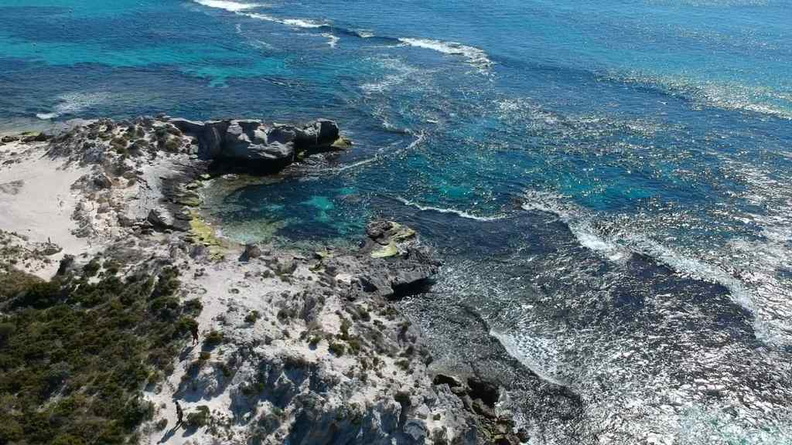
It is formed on a base of aeolianite limestone which most of the buildings and fortifications here were made from in the early days. Moreover, the much of these limestones were also exported into mainland.
Geographically, the island covers 19 square km. The island was separated from the mainland around 7000 years ago when sea levels rose as the planet warmed. Henceforth, Human artifacts have been found on the island dating back at least 30000 years.
Beautiful natural bays facing the Oceans
Moreover, much of Rottnest roads circle around naturally occurring salt lakes (and golf courses). These water features (like the Herschel lake) as well as the green fauna are a refuge for the abundant bird life.
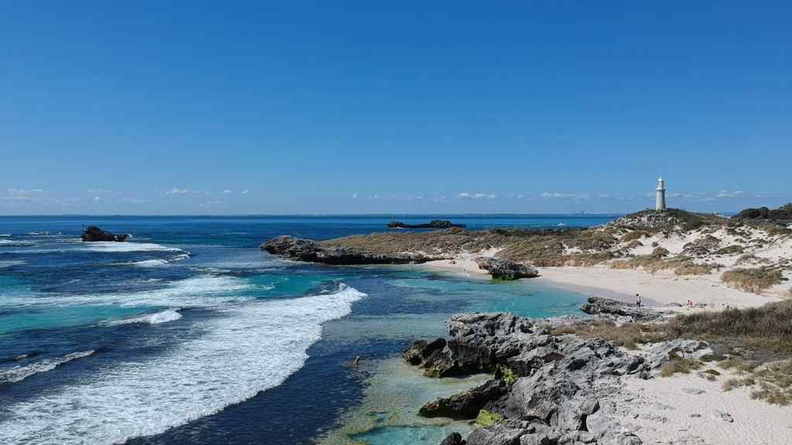
Also, toilets and water fountains can be found along these main routes and scenic viewpoints. They serve as convenient stop over points in your exploration around the island.
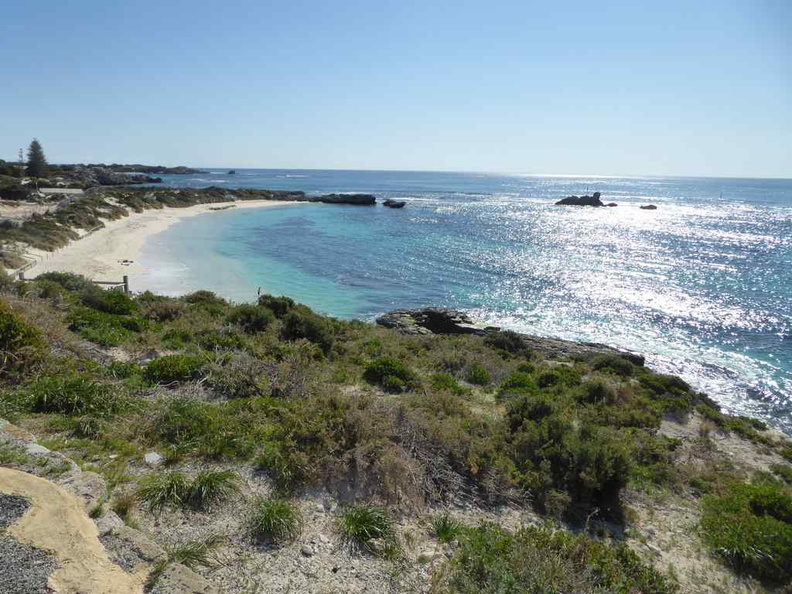
There is a wind turbine at the center of the Island. You can see it when going along the cycling route which meander through the island.
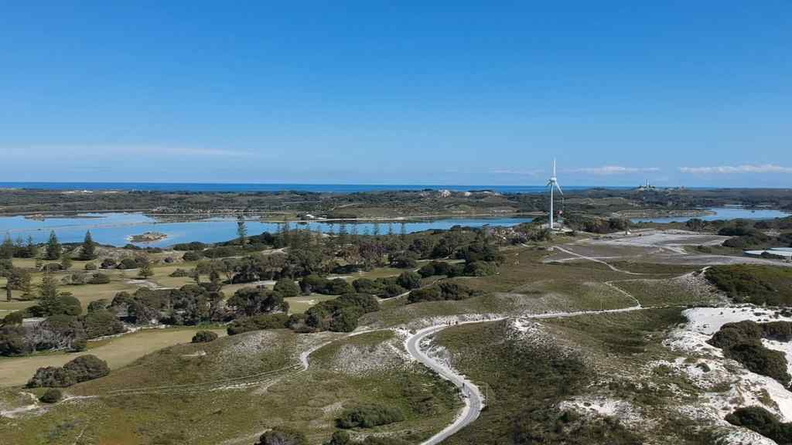
Also, other notable landmarks when moving around the island includes two lighthouses. Namely, Wadjemup lighthouse and the Bathurst Lighthouse.
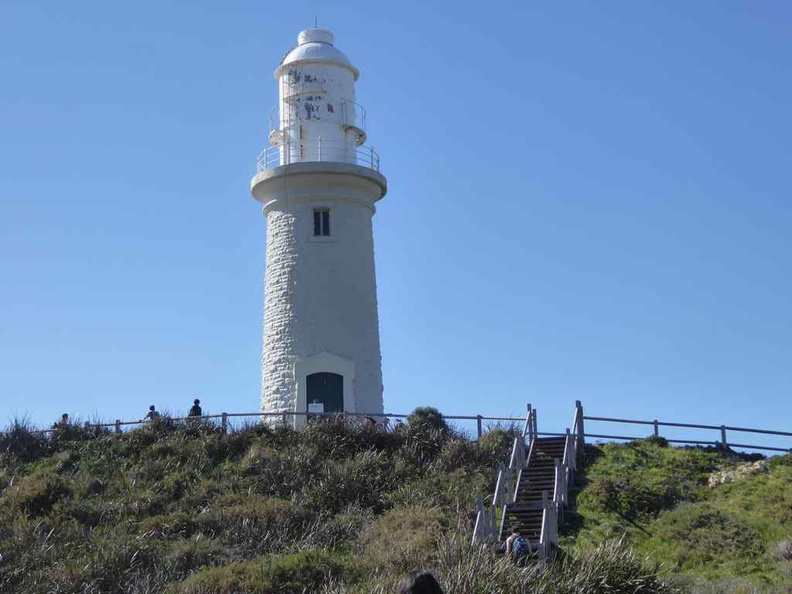
The most notable one being the Bathurst Lighthouse (and the other the Basin lighthouse) just on the eastern edge of the island.
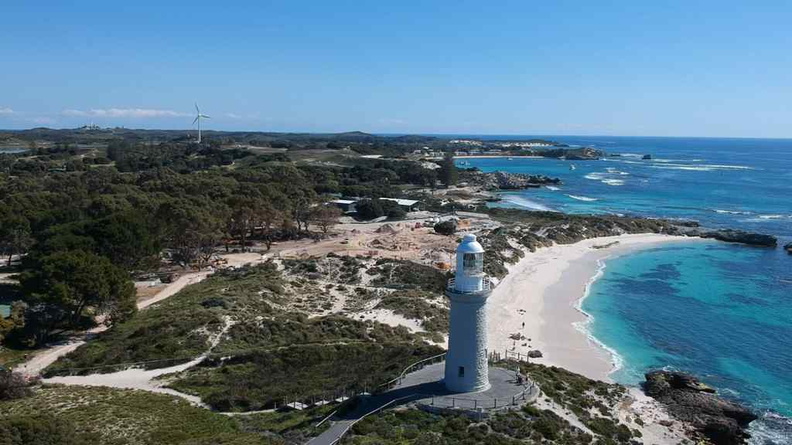
It is by a Long Reach Bay by Pinky beach situated at the northern top part of the island. It provides great overlooking panoramic views of the ocean waves from Bathurst point. You can see the vast Pacific on your left and Perth city towards your right.
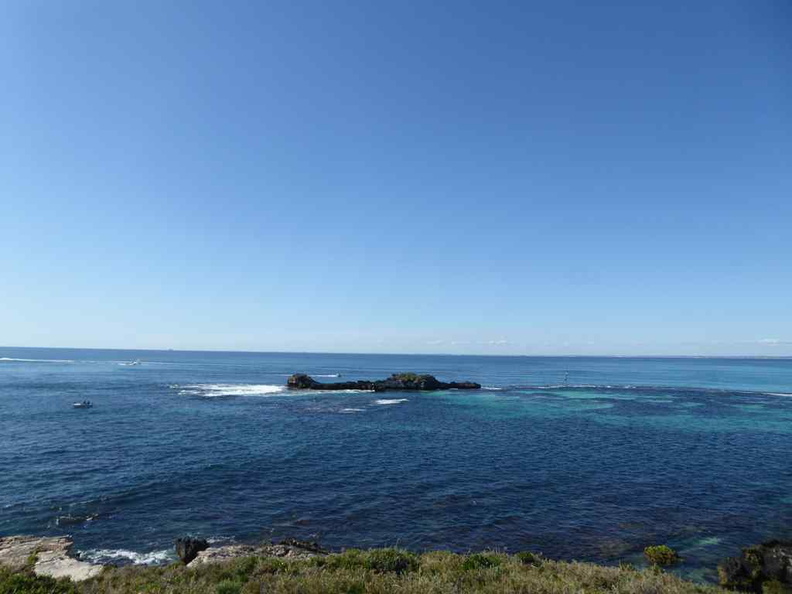
Marine Wildlife
Moreover, besides Quokkas on a good day you can watch marine life around the island shores. Here Cetaceans such as bottlenose dolphins, and migrating humpbacks occasionally passes through the waters surrounding the island.
Panorama of the Thompson bay from the beach front
Also, Thomson Bay is a spot near the stable settlement where the bakery is and is a short walk through a residential area.

Past the boat berth marina area is a beach walk which you can use when the tides are low. It leads to a jetty which is a popular fishing spot.
All in all, Rottnest is a chill place which extends from the already chill and lazy city of Perth. You are good in Rottnest for an entire afternoon day trip with the Rottnest ferry doing trips in and out of the island throughout the day in hourly intervals.

Most of the what you can see in the island can be found near the Jetty area and the Bathurst lighthouse and Long Reach bay within reasonable walking distance. After a while, most of the sights are pretty much the same, so there is not really a need to venture out far from the settlement. Having said that, also, do check out the fantastic bakery in the settlement. The items on sale are very much a delight.
All to go with your delightful and relaxing day on the island.

